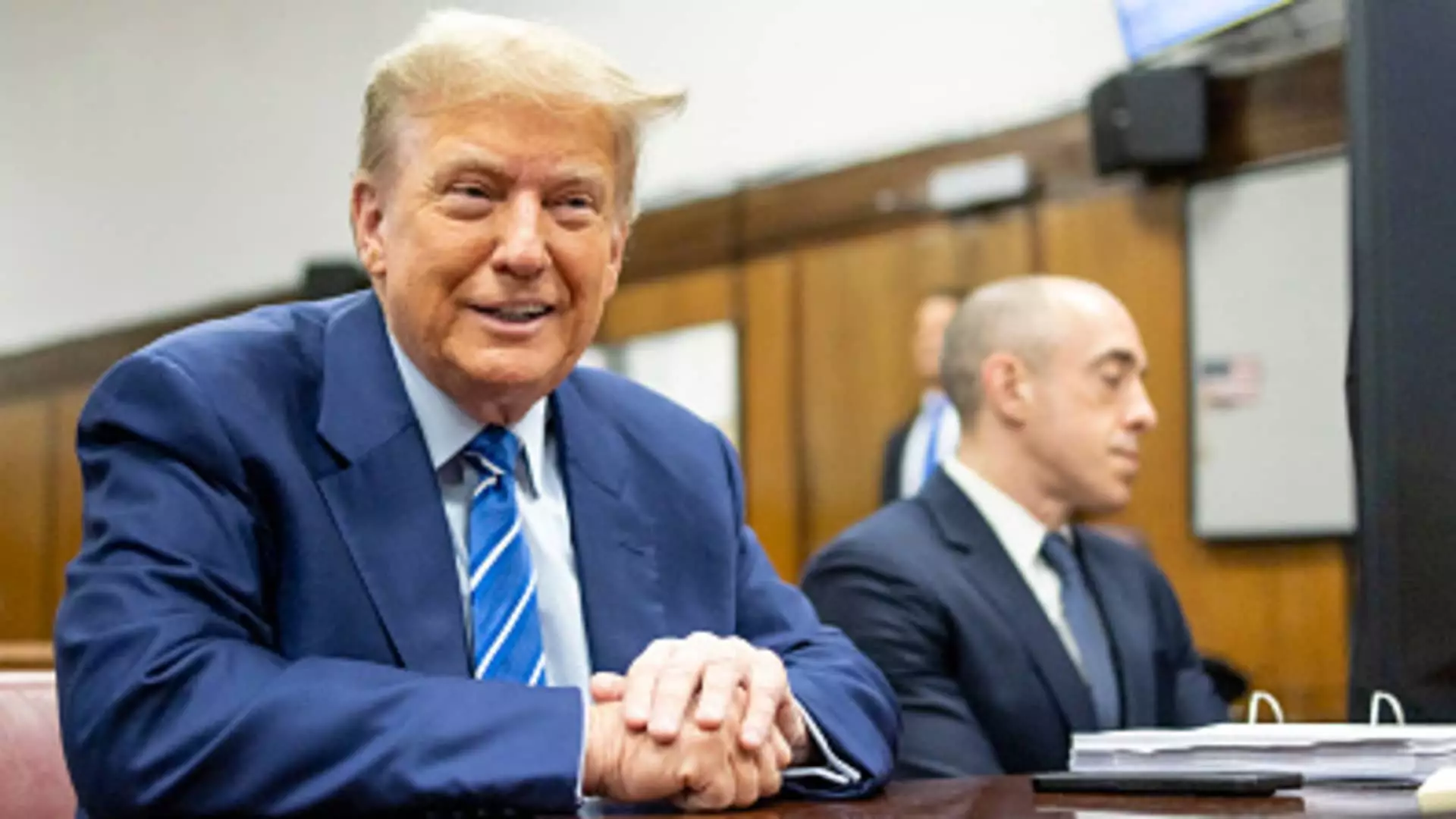A recent judicial decision has stirred the waters of legal and political discourse in the United States as a New York judge, Juan Merchan, has indefinitely postponed the sentencing of President-elect Donald Trump in connection with a criminal case involving alleged hush money payments. This postponement is significant not just for its implications on Trump’s immediate legal challenges but also because it embodies the complexities intertwining legal processes, political power, and public perception. The court ruling, which also permits Trump’s legal team to file motions to dismiss the case, sheds light on the intricate balancing act between judicial integrity and political strategy.
At the crux of this legal battle are 34 counts concerning the falsification of business records. These charges arise from payments made to adult film star Stormy Daniels during the 2016 presidential campaign, which were intended to keep her from discussing an alleged extramarital affair with Trump. The case is emblematic of the intersection between personal conduct and professional obligations, a theme that has frequently recurred in the narratives surrounding Trump’s presidency and business dealings. While Trump adamantly denies any misconduct, arguing against the motivations of those pursuing the case, the backdrop of the scandal reveals a tumultuous relationship between personal reputation and political machinery.
The decision to postpone the sentencing further complicates the timeline of Trump’s legal troubles, particularly as he transitions from being a former president to a president-elect again. This is not merely a matter of judicial procedure; it could have profound implications for Trump’s upcoming presidency, especially considering the prevailing notion that a sitting president is largely immune from criminal prosecution. Trump’s attorneys, including notable legal figures such as Todd Blanche, have posited that the same principles of immunity apply to a president-elect. This argument raises critical questions about the interplay of law and politics—does the concept of presidential immunity extend to pre-election actions, or does it strictly pertain to actions taken while in office?
Moreover, the Manhattan District Attorney’s office is facing a delicate position. While they have expressed support for postponing the sentencing, their stated opposition to Trump’s dismissal bid indicates a robust commitment to seeing the case through despite the complexities involved. This scenario paves the way for a protracted legal battle, and the outcome may hinge significantly on the narratives constructed in the court of public opinion as much as in the courtroom itself.
As we evaluate the ramifications of the postponement, it is essential to contextualize this legal challenge within the broader political landscape. Following Trump’s election victory over Vice President Kamala Harris, the urgency surrounding earlier criminal cases, particularly those handled by special counsel Jack Smith, seems to diminish. The allegations poised against Trump—stemming from attempts to overturn the 2020 presidential election results and mishandling classified documents—are now precariously placed as new layers of political intrigue develop.
This shift raises questions about the accountability of leaders in the face of criminal allegations. Will the political climate and trends in public opinion allow for these cases to be pursued vigorously, or will they gradually fade into the background as Trump re-establishes himself within the political sphere? The broader political implications cannot be understated, as they threaten to influence both the judicial outcomes and subsequent electoral dynamics.
The media narrative surrounding this case also plays a crucial role in shaping public perception. Trump’s spokespeople have celebrated the recent court decisions as victories, emphasizing the notion that these legal battles are motivated by partisan agendas—labeled as “sham lawfare” in statements from Trump’s camp. As these narratives proliferate, they could substantially affect voter sentiment and rally support among Trump’s base.
The indefinite postponement of Trump’s sentencing is far more than a simple legal delay; it encapsulates a rich tapestry of intersecting issues involving legal principles, political strategy, and public perception. The manner in which this case unfolds could not only shape Trump’s political future but also set a precedent for how legal matters involving high-profile political figures are addressed in the United States moving forward. As the narrative evolves, observers and analysts alike will undoubtedly scrutinize each development with keen interest.



Leave a Reply